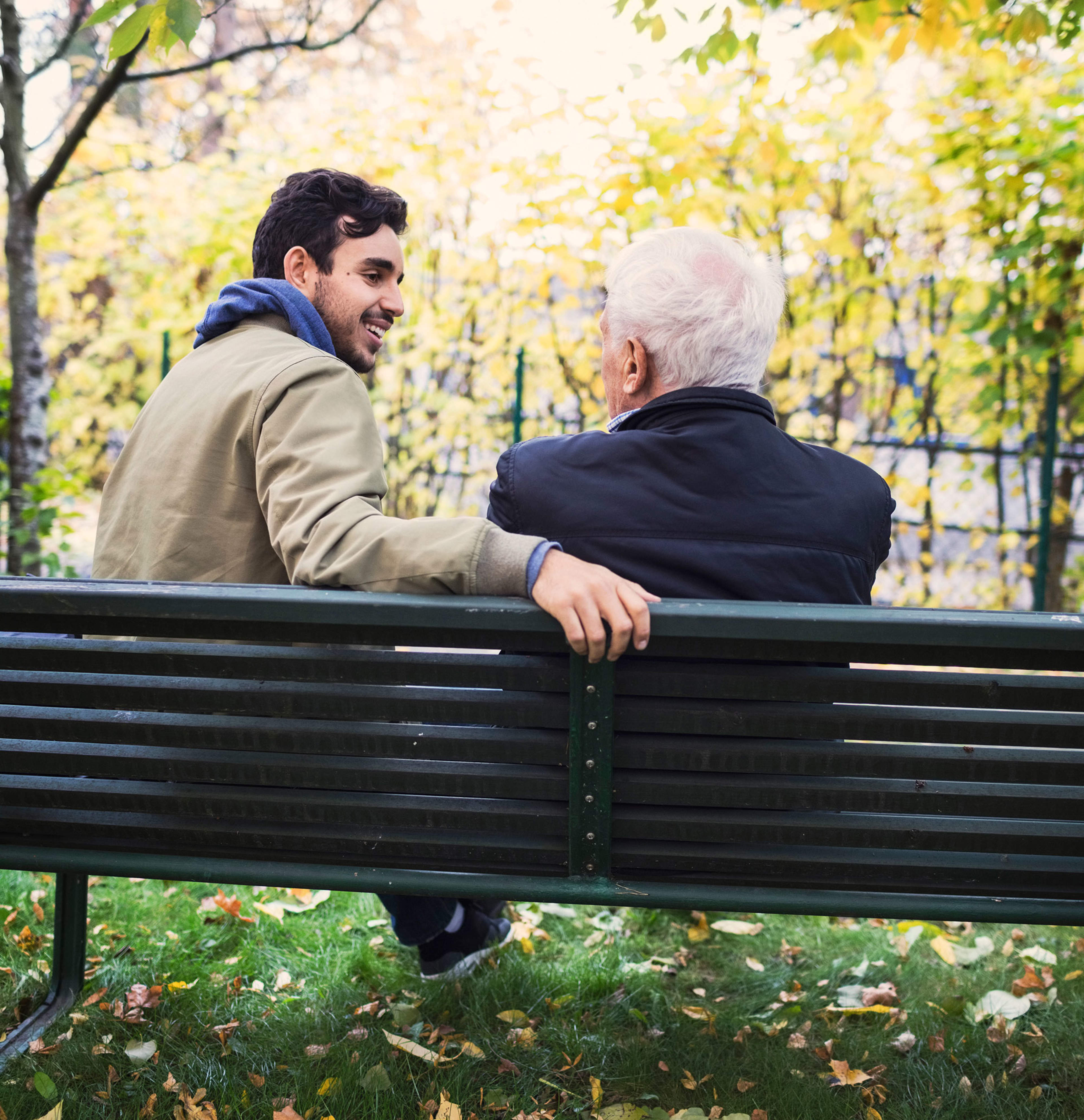We all experience crisis reactions; they can occur at any age. When faced with a crisis, the first symptoms – even severe ones – don’t predict how the crisis will develop going forward. An individual’s capacity to cope with a crisis depends not only on individual characteristics but also on the surroundings and the support available.
Crisis reactions
A crisis reaction is a human reaction to a significant, surprising change in life that we have not been able to prepare for.

When faced with a crisis, our first reaction is a shock-like emotional disturbance. At first, when we’re in a difficult stage of life, the mind may exaggerate things; it’s difficult to think straight, and our emotions fluctuate. As the shock subsides, we react with strong emotions. Finally, we are able to process what has happened using our mind and the choices we make, and gradually come to terms with what has happened. The adjustment process is easier if we have the capacity to face the emotions raised by the crisis and to accept the crisis reaction as a phase of our life.
A traumatic crisis comes from facing a significant emotional shock and not having the necessary strength and life experience to process it. Having a serious illness is always a crisis that threatens our existence. The crisis reaction may recur if the illness progresses despite treatment or if we find ourselves with no cure available. Having a progressive terminal illness may cause crisis symptoms to come back when we’re feeling alone and facing something new and unfamiliar to us.
Having a serious illness is both a traumatic crisis and a developmental one. This makes us face questions concerning the finite nature of life. What is the meaning of life? What is the meaning of my life? Have I lived my life in a meaningful way? How can I face the loneliness brought on by the illness?
Common symptoms of a crisis reaction include fear, anxiety, and problems with concentration and memory. Mood fluctuations between hope and despair may be rapid, and we may suffer from self-accusations or irritability. Even if we’re feeling quite calm, we may experience physical symptoms caused by anxiety, such as elevated heart rate, restlessness, loss of appetite, nausea, tremors, and insomnia.
In a crisis, our thinking is limited to the short term, and we find it hard to think rationally. In these situations, many of us have occasional thoughts such as “I think I’m losing my mind”, “my head can’t handle this”, or “I want to die”. During a crisis, our mind may exaggerate our emotions and blow them out of proportion. Our first reaction may also be to become paralysed with shock or to deny what has happened.
Self-compassion helps us face what has happened and adjust to it. This way, the crisis doesn’t control our thinking anymore, and the experience becomes a part of our life. It’s good to keep in mind that the crisis reaction often settles on its own, without the need for any specific treatment, as long as we receive sufficient and appropriate information, support, and care.
In a crisis, the things we need include other people’s presence, support, a feeling of being heard, and often, concrete help and guidance. Talking to someone who listens, or writing about what has happened, often helps us make sense of what we’ve experienced.
When faced with a crisis, the ability to accept help is a sign of strength. If it doesn’t feel natural to you, you don’t have to talk about the crisis: simply spending time together as usual can help restore the feeling of safety. What we would usually do to calm ourselves is also applicable in a crisis.
Facing and accepting our emotions adds to our wellbeing. It’s best if we don’t have to spend too much time alone thinking about what happened or going over the things on our mind. In a crisis, our moods fluctuate rapidly, so this isn’t a good time to make big decisions or choices that we would be likely to regret soon.
Adjusting to having a serious illness is a long process that takes time. We may also need answers to our questions from professionals, and a stronger connection to the people close to us. After going through a crisis, our relationships often become even more meaningful to us than before.
If necessary, a doctor may prescribe medicines to relieve crisis symptoms. However, medication can never replace the role of human interaction and care. In terms of self-management, it’s worth considering peer support and activities offered by patient organisations.
Remember to eat and drink enough and try to maintain regular bedtimes. Try to avoid alcohol and other substances that affect the central nervous system. Don’t take medicines prescribed to a friend or a relative – only take medicines prescribed to you by a doctor for the current situation.
Updated 14.4.2025

